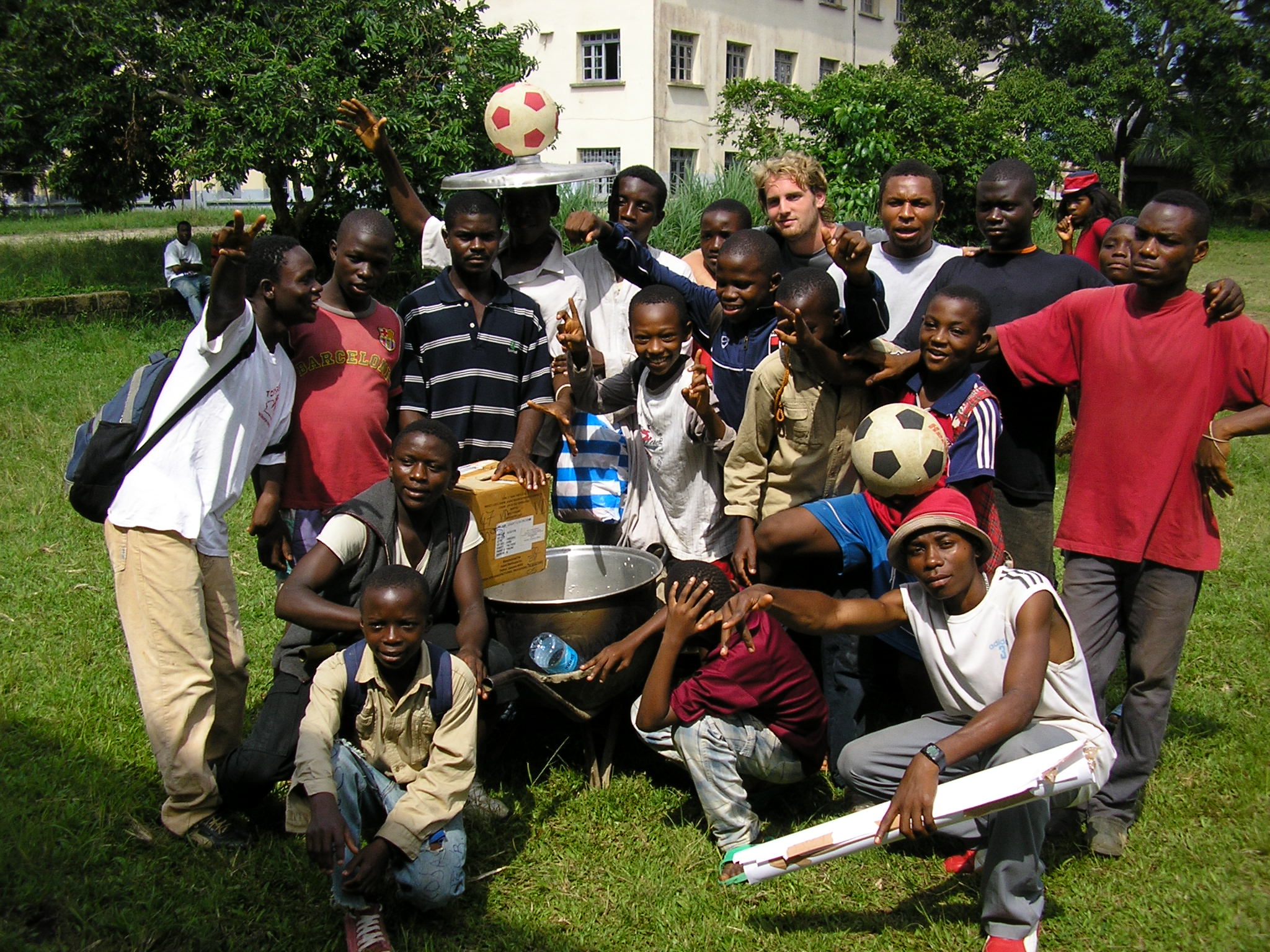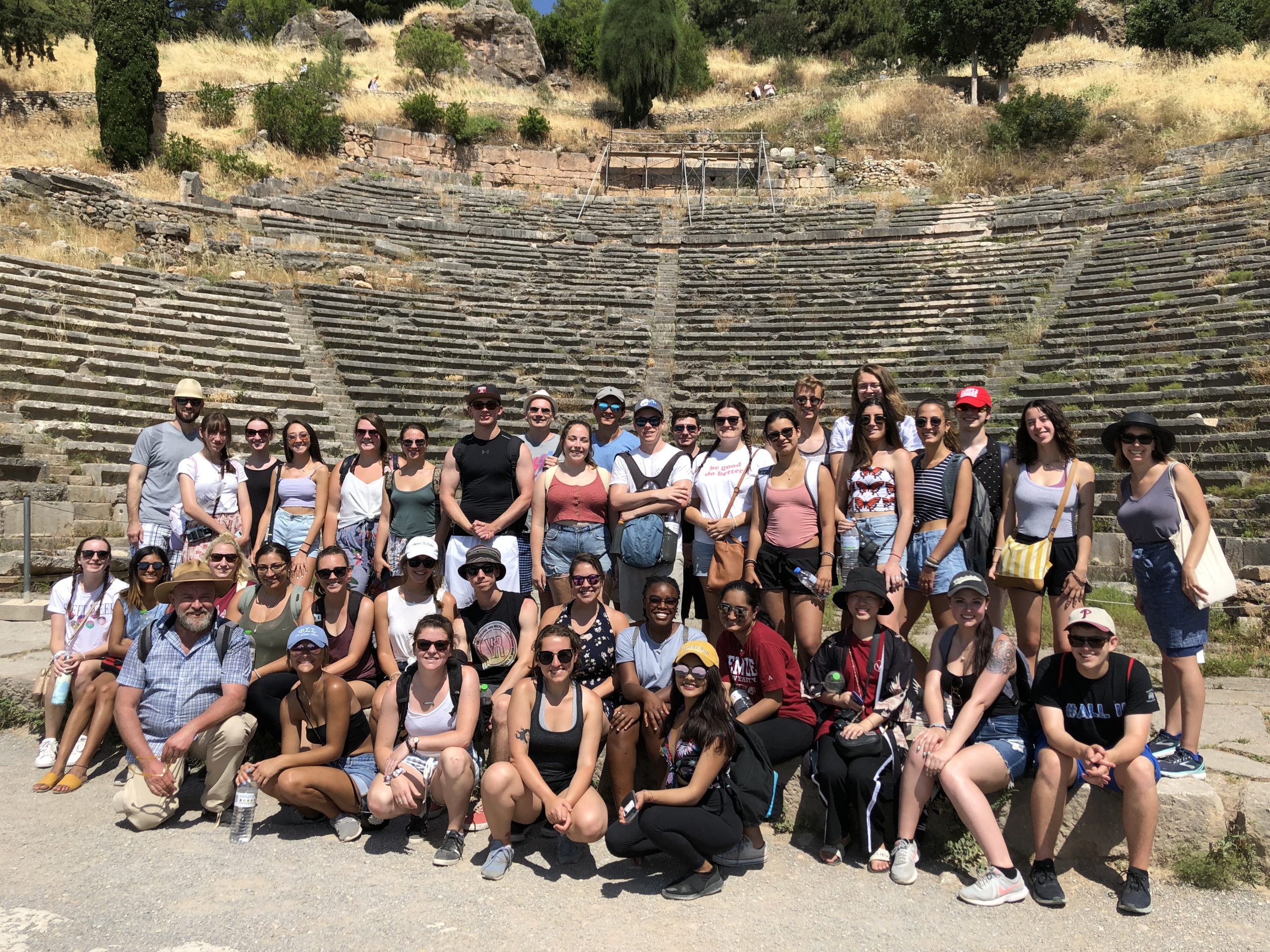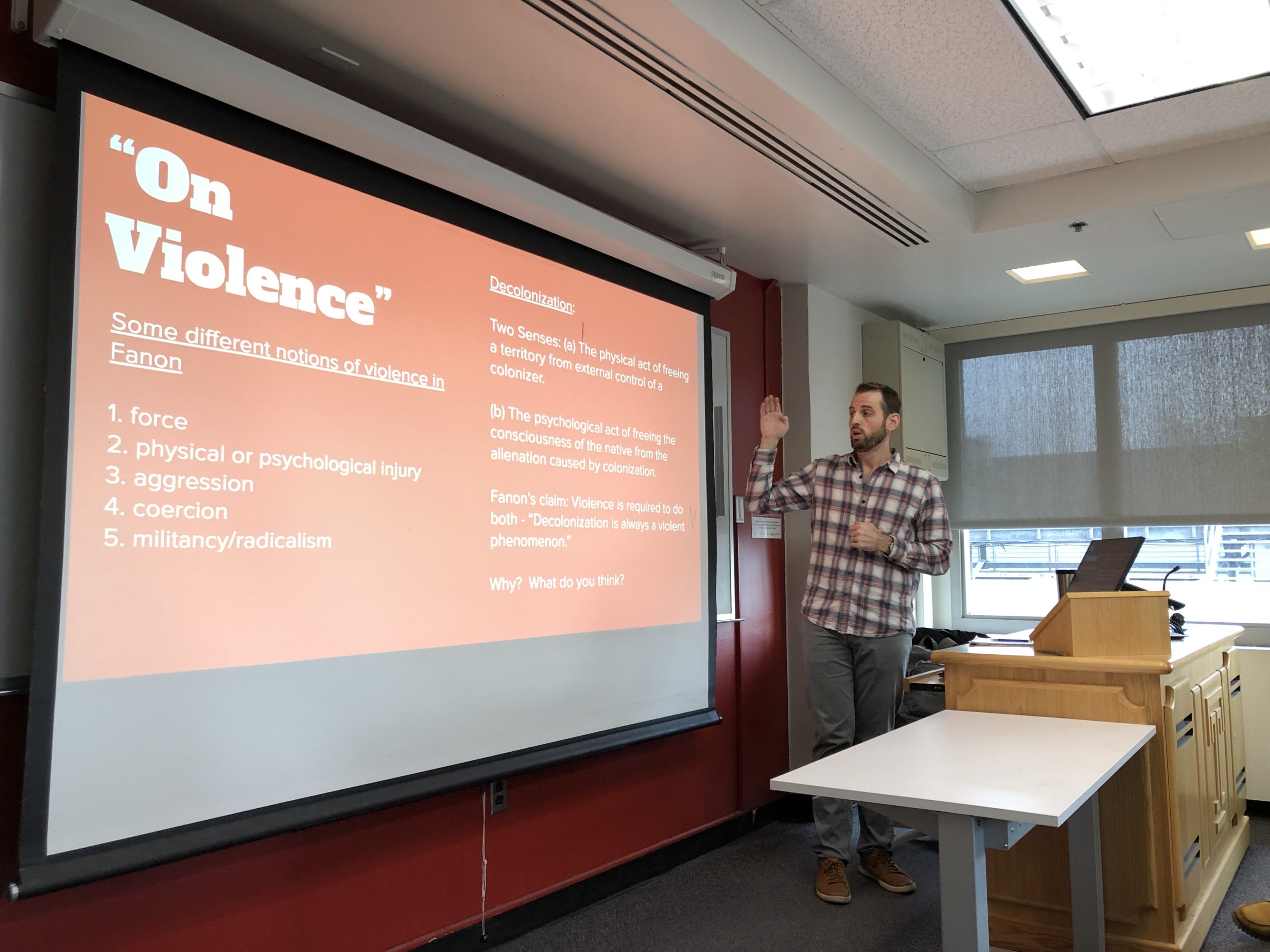More About
Justin Fugo
I was born and raised in Syracuse, NY, (Go ‘Cuse!), which, despite its reputation for frigid temperatures and record snowfall, conjures up warm memories of great times spent with family and friends. It is also where I first discovered my love of philosophy. During my senior year religion class at Bishop Ludden Junior-Senior High School, Rev. Dan Muscalino decided to take his students on an adventure in critical thinking by introducing us to some of the major thinkers and themes in the history of philosophy.
As an undergraduate at Siena College, I pursued my passion for philosophy and received a rigorous education in the history of philosophy, with specialized training in the Continental tradition. This training, coupled with Siena’s Franciscan values which foster diversity, respect for the uniqueness and dignity of each person, and special concern for the poor and marginalized, helped to shape my character and fueled my desire to “practice philosophy for social change.” During my junior year, I embarked on a journey to study abroad in Senegal. This experience was deeply formative, helping to shape me as a person and pique my initial interest in African philosophy. During my time in Senegal, I lived with a caring Senegalese family in Dakar, met amazing people, made lasting friendships, ate delicious food, and danced to some of the world’s greatest music -- all while my desire to promote positive change continued to grow.
Following college graduation, I made a decision that would change my life forever and further direct me on my life's path. I joined the Peace Corps, and was stationed in Cameroon. In the rural village of Makak, I was far away from academia, yet philosophy was in practice every day as I was directly engaged in projects geared toward social transformation. My primary task as a Community Health Development Agent in my village was to work alongside my Cameroonian counterpart Roger Ndebi to help the Youth Development Foundation -- a Cameroonian NGO -- with their peer education program. This program trains youth in reproductive health education and life skills with the hope that these young people can benefit personally, and bring this knowledge back to their local communities. I also worked on other grassroots projects such as coordinating and fundraising for the installation of potable water sites, and helping a women’s group develop and grow an income generating project. Working primarily with young people offered me time during the school day to sit outside my office to read and chat with people walking by -- Cameroonians care more about how one gets where one is going, as opposed to when one arrives, so stopping to talk was commonplace. Being a white man in a rural African village was an easy conversation starter, and my love of philosophical dialogue fueled countless exchanges with those who passed by. These conversations, coupled with the time I spent in communion around the palm wine jug, inaugurated my informal education in African philosophy, and showed me the meaning and value of a simple, yet profound, Cameroonian expression -- on est ensemble (we are together). For me, this ethos contains a powerful imperative that one should not only be concerned with individual flourishing, but committed to the flourishing of all, because one’s own well-being is intimately related to the well-being of others.
After returning home from the Peace Corps, I knew I wanted to formally return to philosophy, and bring African philosophy to bear on persistent philosophical and practical problems. With the help of many faculty members at Boston College, specifically Rev. Charles Oduke, who worked with me independently in African philosophy, I began to see promise in this journey. During my time at BC, and the time I spent researching at the École Normale Supérieure in Paris, I became engrossed in Lewis Gordon’s work, which led me to pursue my Ph.D. at Temple University. Under Lewis’s mentorship, my previous training in Continental thought was bolstered, I gained a deeper understanding of the broader Africana tradition, and I became increasingly aware of the centrality of race and racism in the development of the human sciences and daily life -- all of which were central to my dissertation. I created and developed this project with the support of many colleagues whom I admire and respect. My dissertation would not have been possible without the patience and critical eye of my chair, Espen Hammer, and the unwavering support and specialized knowledge of Miriam Solomon and the late Joe Margolis.
Currently an Assistant Professor in Philosophy at the University of Dayton, I reside just outside of Dayton with my wife and best friend, Rachel, whose wisdom and support help guide me, and our four rambunctious and amazing children. Being a father further ignites my passion to “practice philosophy for social change” with the hope of bringing forth a world that reflects that on est ensemble.





